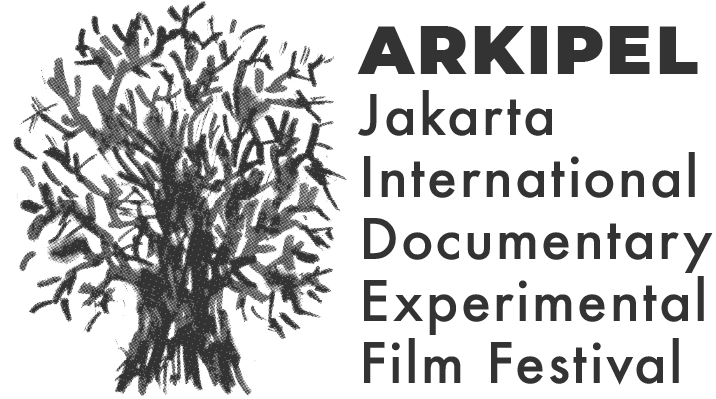Menjelajah “Kita” yang Sepertinya Sederhana
Examining the Seemingly Simple “We”
Host Hafiz Rancajale
Minggu, 27 Nov 2022 – 13:00
Ada banyak cara manusia untuk mengetahui identitas, akar kebudayaan, atau persoalan kultural lainnya yang melekat pada dirinya. Bisa saja melalui hal-hal yang paling sangat sederhana, yaitu diri sendiri atau tubuhnya; dan ada juga yang melihat persoalan “ruang” yang menjadi habitus di mana manusia itu hidup. Hal-hal yang sepertinya sederhana itu, dalam sinema bisa menjadi hal yang sangat rumit dan penuh “drama” dalam filem, karena setelah ia dibingkai akan muncul kerumitan-kerumitan yang sebelumnya tidak kita duga. Kita sering tak sadar bahwa dalam akar kebudayaan yang terbawa dalam tubuh dan ruang di mana kita hidup, selalu melekat berbagai dimensi sosial-politik, penanda identitas, bias budaya, politik kawasan, batas-batas nasional, hal-hal yang filosofis, dan kuasa ilmu pengetahuan. Pada akhirnya, itu semua memunculkan pertanyaan besar: Siapakah diri kita sebenarnya?
Dua filem yang dihadirkan dalam sesi ini mencoba membongkar kisi-kisi kemanusian melalui kemampuan ilmu pengetahuan kontemporer. Setiap manusia mempunyai akar yang melekat secara absolut, karena secara biologis ia pasti lahir dari struktur dan kultur yang membentuk dirinya. Melalui kemampuan ilmu pengetahuan, persoalan yang tadinya “hanya” persoalan sederhana, seperti bagaimana kita berkomunikasi, bersuara, dan melihat ruang kita hidup, dalam dua filem ini menusuk ke persoalan yang sangat tajam; yang intim menjadi persoalan global.
Filem By The Throat (2021), karya Amir Borenstein and Effi Weiss, mengeksplorasi batas tak terlihat yang memisahkan manusia dari suara yang dihasilkan dari tenggorokan, yang mengeluarkan bahasa ibu dari masing-masing individu. Melalui penelitian yang ketat dari berbagai macam perspektif, filem ini menghasilkan bahasa sinematik yang unik. Tidak hanya membongkar persoalan-persoalan ilmiah, namun ia membongkar dimensi sosial politik dari persoalan berbahasa individu-individu di dunia, yang menawarkan pandangan orisinal tentang masalah kontemporer; bahwa masih banyak persoalan kemanusiaan yang mencekik kita yang tak pernah terbayangkan sebelumnya. Dari filem ini kita menyadari bahwa bahasa telah digunakan untuk mendefinisikan, mengkategorikan, dan mengontrol, yang pada akhirnya mengaburkan batas-batas yang sebelumnya dianggap sebagai sebuah kebenaran dalam pikiran kita.
Filem Minimal Sway While Starting My Way Up (2021) karya seniman Stéphanie Lagarde berangkat dari konsep sederhana tentang ruang, yang mengeksploitasinya hingga menjadi persoalan yang sangat luas. Melalui perspektif elevator dan teknologi artificial intelligence, ia menjelajahi keinginan-keinginan yang tak terungkap dari manusia; melihat ke atas dan ke bawah. Karya ini membongkar hubungan yang tak terlihat antara persoalan ketinggian yang digambarkan dari fasad-fasad gedung tinggi, simbol-simbol kuasa sosial, budaya dan ekonomi, lalu menukik ke dalam perut bumi, tempat eksploitasi kekayaan alam berlangsung dari zaman kolonial. Filem ini dibungkus dari hal yang nyata ke virtual, dari yang sifatnya objek ke manusia, yang terjalin menjadi sebuah rangkaian visual yang filosofis dari persoalan kemanusiaan kontemporer.
Tentu saja sinema menghadirkan imajinasi yang bebas tentang persoalan-persoalan kemanusiaan. Namun, dua filem secara filmis berhasil mengajak kita untuk menjelajahi dan merefleksikan persoalan manusia kontemporer, yang terkadang kita anggap sebagai sesuatu yang sangat sederhana. Sudah menjadi keniscayaan, kita saat ini diasupi hal-hal yang instan dan sepertinya sederhana. Sesi ini memberi ruang pada kita untuk melihat yang jauh lebih rumit tentang hal-hal yang kita anggap sederhana.
There are many ways for humans to figure out their identity, cultural roots, or other cultural issues pertaining to them. It could be through the simplest things, namely oneself or one’s body; and there are also those who see the problem of “space” which becomes the habitus in which one lives. In cinema, such things that seem simple can become very complicated and full of “drama” because once it is framed, complexities that we did not expect before will emerge. We often don’t realize that within the cultural roots embedded in the bodies and spaces in which we live, always attached are various socio-political dimensions, identity markers, cultural biases, regional politics, national boundaries, philosophical matters, and the reign of knowledge. In the end, it all begs the big question: Who are we actually?
The two films presented in this program try to dismantle the grids of humanity through the capacity of contemporary science. Every human being has roots that are inherent and absolute, because biologically one must be born from the structure and culture that formed oneself. Through the capacity of science, problems that were previously “just” simple problems, such as how we communicate, speak, and see the space we live in, in these two films cut through very sharp issues; what’s intimate becomes a global affair.
By The Throat (2021) by Amir Borenstein and Effi Weiss explores the invisible boundary that separates humans from the sounds produced by the throat, which generate the mother tongue of each individual. Through rigorous research from various perspectives, this film produces a unique cinematic language. Not only dismantling scientific problems, but also dismantling the socio-political dimension of the language problems of individuals in the world, which offers an original view of contemporary problems; that there are still many humanitarian issues suffocating us that we never imagined before. From this film we realize that language has been used to define, categorize, and control, which ultimately blurs the boundaries that were previously viewed as a truth in our minds.
Minimal Sway While Starting My Way Up (2021) by artist Stéphanie Lagarde sets out to depart from a simple concept of space, exploited to the point of it becoming a very broad problem. Through the perspective of elevators and artificial intelligence technology, the film explores the unspoken desires of humans; looking up and down. This work uncovers the invisible relationship between the problem of height depicted from the facades of tall buildings, symbols of sociocultural and economic power, then dives into the bowels of the earth, where the exploitation of natural resources has been going on since colonial eras. This film is devised from the real to the virtual, from objects to humans, woven into a philosophical visual series of contemporary humanitarian issues.
Of course, cinema presents a free-ranging imagination about humanitarian issues. However, the two films managed to cinematically invite us to explore and reflect on contemporary humanitarian issues, which we sometimes think of as something very simple. It is inevitable that we are currently fed things that are instant and seemingly simple. This program gives us some space to see the much more complicated sides of what we used to think of as simple.
Film List

By The Throat
Filmmaker Effi & Amir
Country of Production Belgium
Language English, Arabic, Dutch, Hebrew, German, Tibetan, Albanian
Subtitle English
77 min, stereo, HD, color, 2021
Dari zaman dulu hingga sekarang, cara kita mengucapkan kata-kata telah digunakan untuk membedakan kawan ataupun lawan. Dari kata-kata kita dapat memilah siapa yang diterima atau dilindungi, dan siapa yang akan diabaikan. Dalam filem ini, suara ataupun vokal manusia didadar menjadi persoalan yang membuka persoalan sosio-politik kawasan dan etnis, yang selalu menyelimuti di berbagai kawasan di dunia.
From ancient times until now, the way we pronounce words has been used to distinguish between friend or foe. From words we can sort out who is accepted or protected, and who will be neglected. In this film, human voice or vocals are elaborated as an issue that opens up ethnic and regional socio-political issues surrounding various regions of the world.

Effi & Amir (lahir di Israel, tinggal di Brussels) adalah duo seniman yang telah bekerja bersama sejak 1999. Secara umum, karya mereka berbasis video dan kerap melibatkan elemen performatif maupun metode partisipatoris. Di luar proyek mereka berdua, Effi & Amir berkolaborasi dengan seniman lainnya sebagai editor, desainer efek, dan animator. Mereka mengajar dan memberikan lokakarya video untuk beragam peserta, baik profesional maupun amatir.
Effi & Amir (born in Israel, living in Brussels) is an artist duo that has been working together since 1999. Their work is mainly video-based and often involves performative elements and participatory methods. Apart from their own projects, Effi & Amir collaborate with other artists as editors, effects designers and animators. They teach and give video workshops to a variety of audiences – professional and amateurs.

Minimal Sway While Starting My Way Up
Filmmaker Stéphanie Lagarde
Country of Production France, Finland
Language English
Subtitle –
15 min, stereo, HD, color, 2021
Filem ini menjelajahi dunia pemikiran yang sangat bebas dalam melihat pengalaman sosio-kultural manusia, dari perspektif arsitektural, elevator dan kecerdasan buatan. Pengalaman melihat itu dibawa melalui pandangan kita dalam arsitektur, fasad-fasad gedung pencakar langit yang kemudian turun ke dalam ribuan meter, langsung ke sumber kehidupan; bumi. Persoalan metafisika yang ditawarkan sutradara, memberikan penonton pengalaman bagaimana kita melihat persoalan kelas, eksploitasi, dan keserakahan yang mengabaikan hal yang paling esensial dari kemanusiaan.
This film explores the world of free-ranging thoughts in viewing human socio-cultural experience, from the architectural perspective, elevator and artificial intelligence. The experience of seeing is carried out through our gaze in architecture, the facades of skyscrapers, then diving thousands of meters deep, straight to the source of life; earth. The metaphysical concerns offered by the director give the audience an experience of how we see issues of class, exploitation and greed that abandon the most essential things of humanity.

Stéphanie Lagarde (Toulouse, Prancis, 1982) adalah seniman rupa dan pembuat filem berbasis di Paris, Prancis. Karya-karyanya mengupas strategi okupasi dan organisasi ruang di sistem objek, bahasa, dan manusia. Karya-karyanya pernah tampil di Plato Ostrava, Czech Republic; Kunstmuseum Bonn, Germany; Frei_raum Q21 MuseumsQuartier Vienna, Austria; Tallinn Art Hall, Estonia; Ludwig Forum für Internationale Kunst, Aachen, Germany; Centre for Contemporary Photography, Melbourne, Australia; Palais de Tokyo, Paris, France. Karya videonya pernah ditayangkan di festival seperti IFFR (Rotterdam), Internationale Kurzfilmtage Winterthur (Switzerland), BISFF (Beijing), Berlin Atonal, Videonale (Bonn), Transmediale (Berlin), EMAF (Osnabrück), DOKLeipzig, Kasseler Dokfest, KFFK (Koln), Curtocircuitos (Spain), November Festival (London). Ia memenangkan Grand Prize at BIEFF 2019 (Bucharest) dan International competition award Short Waves Festival 2019 (Poznan, Poland).
Stéphanie Lagarde (born in Toulouse, FR in 1982) is a visual artist and filmmaker based in Paris, France. Her works deal with strategies of occupation and the organization of space throughout systems of objects, languages and human beings. She exhibited in venues such as Plato Ostrava, Czech Republic; Kunstmuseum Bonn, Germany; Frei_raum Q21 MuseumsQuartier Vienna, Austria; Tallinn Art Hall, Estonia; Ludwig Forum für Internationale Kunst, Aachen, Germany; Centre for Contemporary Photography, Melbourne, Australia; Palais de Tokyo, Paris, France. Her videos have been shown in festivals such as IFFR (Rotterdam), Internationale Kurzfilmtage Winterthur (Switzerland), BISFF (Beijing), Berlin Atonal, Videonale (Bonn), Transmediale (Berlin), EMAF (Osnabrück), DOKLeipzig, Kasseler Dokfest, KFFK (Koln), Curtocircuitos (Spain), November Festival (London). She won the Grand Prize at BIEFF 2019 (Bucharest) and the International competition award of Short Waves Festival 2019 (Poznan, Poland).
About the Host

Hafiz Rancajale (Pekanbaru, 1971) adalah seniman, pembuat filem, kurator, dan salah satu pendiri Forum Lenteng. Menamatkan pendidikan Seni Murni di Institut Kesenian Jakarta (IKJ), dan kini menjadi Ketua Forum Lenteng dan juga Direktur Artistik ARKIPEL. Tahun 2017 dan 2018, ia adalah kurator Pekan Seni Media yang diadakan oleh Kementerian Pendidikan dan Kebudayaan bekerja sama dengan Forum Lenteng.
Hafiz Rancajale (Pekanbaru, 1971) is an artist, filmmaker, curator, and co-founder of Forum Lenteng. He graduated from the Jakarta Institute for the Arts (IKJ) and is currently the Chairman of Forum Lenteng and the Artistic Director of ARKIPEL. In 2017 and 2018, he was the curator of Pekan Seni Media, organized by the Ministry of Education and Culture, in cooperation with Forum Lenteng.

